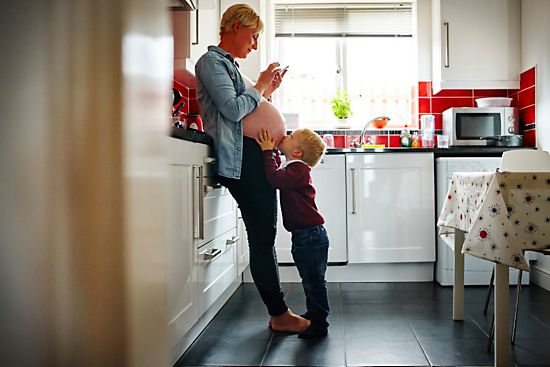5 Practices of a Peaceful Home

Guitars sound nice because of stress. Great guitarists know how to turn the tuning pegs just enough that all six strings are in harmony with one another and on key. But too much stress, too much tension, can stretch or break a string.
In the same way, every family will experience stress and tension. It’s inevitable, and it’s possible to experience peace together even in the middle of tension. But too much stress can cause us to snap and lose our harmony.
Families are experiencing unprecedented stress today. It results from economic hardship, the rat race at work, global and cultural events, high educational standards, peer pressure, and much more. I’m convinced that home ought to be a little like a island – a safe place in a war zone. And the Bible gives us some simple wisdom about some valuable practices for peaceful homes.
Learn to Laugh
Proverbs 15:13 says, “A glad heart makes a cheerful face, but by sorrow of heart the spirit is crushed.” (ESV) Laughter is like medicine, and laughing together as a family is highly therapeutic. And it doesn’t take a lot of effort to find things to laugh about. My daughter and I listen to the “PG Comedy” channel on Pandora in the car. We all take group selfies making silly faces, which is compounded even more with the Photobooth app. Learn to laugh, even on tough days.Cultivate Contentment
It’s quite difficult these days to “keep up with the Jones’.” Families are crashing and burning today in the rubble of financial disaster because of consumer debt. We must have, and then we must have more. But Paul wrote in 1 Timothy 6:6-8, “A godly life brings huge profits to people who are content with what they have. We didn’t bring anything into the world, and we can’t take anything out of it. As long as we have food and clothes, we should be satisfied.” (GW)Or in the words of Mary Poppins, “Enough is as good as a feast.” The word “enough” is a good one to draw out of our vocabulary on a regular basis to remind ourselves of the difference between wants and needs. It’s certainly possible to have enough toys, enough food, or enough gadgets, and enough is as good as a feast.
Alleviate Anger
Proverbs 15:18 says, “Hot tempers start fights; a calm, cool spirit keeps the peace.” (MSG) Not all anger is bad. Anger is just a normal human emotion. It’s all about what we decide to do with our anger that matters. When we stuff our feelings inside and leak or explode later, nobody wins. The better solution is developing the practice of giving soft answers to one another.One of the best verses for families to learn together is found in Proverbs 15:1, “A kind answer soothes angry feelings, but harsh words stir them up.” (CEV) Imagine the change you’d see in your home if everyone’s first response was kindness.
Walk in Wisdom
To walk in wisdom, you need to walk together. Realize that your family is a team and everybody has a position to play. It’s not the parents against the kids, it’s the family becoming all that God intended together, as a team.Parents, God has given you authority within the home, not so that you can take the place of God in your children’s lives, but so that you can be His representative. God has given you wisdom to guide them. And He will give you more! Proverbs 15:24 says, “Wise people walk the road that leads upward to life, not the road that leads downward to death.” (TEV)
Express Gratitude
Philippians 4:6-7 says, “…do not be anxious about anything, but in everything by prayer and supplication with thanksgiving let your requests be made known to God. And the peace of God, which surpasses all understanding, will guard your hearts and your minds in Christ Jesus.” (ESV) There is incredible power in praying about tension and expressing thanks. There is a direct link between gratitude and joy, and often when we struggle to find joy, thankfulness is the answer.You may have a family tradition like ours on Thanksgiving Day. Just before digging into the turkey and dressing, we express something we’re thankful for. But I like it even more when we do it randomly, not just on a holiday.
To make your home an island in the midst of turbulent waters, try being intentional about discovering truth together, laughing together, and encouraging each other. God knows we need peaceful homes more than ever!



